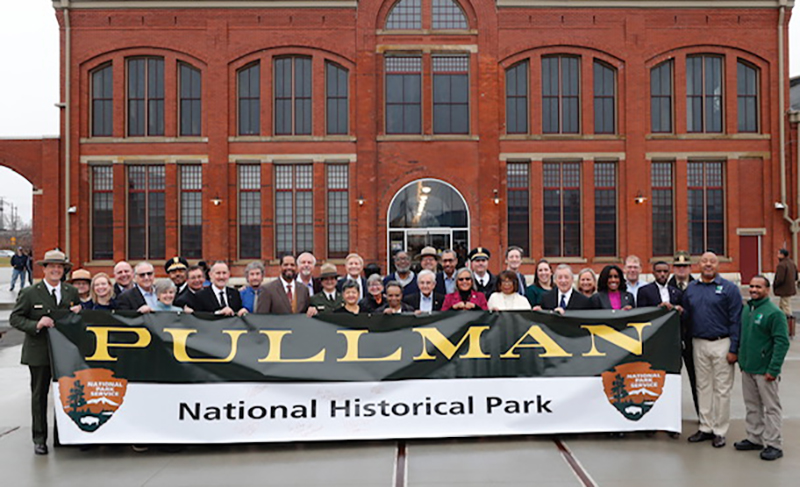Rep. Robin Kelly, D-Ill., spearheaded the re-designation of the Pullman National Historical Park on Thursday, Jan. 19.
In 2015, President Barack Obama designated Pullman as a National Monument. Kelly said it took until 2022 for Congress to give Pullman the pride of place among our nation’s greatest treasures by designating it as a National Historical Park.

Kelly, who represents Homewood and Flossmoor in Congress, has been supporting the efforts of community activists to recognize the history of the Pullman Palace Car Company that was based around 110th and Cottage Grove Avenue.
Founder George Pullman changed rail travel starting in the 1870s by designing luxury rail cars. He brought workers from throughout the U.S. and Europe to work in the factories, and organized the first company town for his workers. Many of the flats and homes are privately owned today, and several important buildings from that period remain, including a Greenstone Church and one of the factories that today houses the A. Philip Randolph Pullman Porter Museum.
When demand of the rail cards plummeted, Pullman cut employee wages. The workers went on strike in 1894. The government called out troops to break up the strike by American Railway Union members and the boycotts that reduced the use of Pullman cars. The action to break up the strike was a turning point in labor organizing.
“The story of Pullman is a testament to the power of community. Over a century after the historic Pullman strike, the residents of Pullman are still fiercely dedicated to preserving the history that this place represents,” Kelly said.
“I have the privilege of representing this community in Congress and it was an honor to lead the effort to designate Pullman as a National Historical Park. Places like Pullman are what built the American middle class, its resilience is a constant reminder that the fight for economic justice is never over.
“At a time when labor rights and civil rights are still under threat, Pullman is a reminder that when communities come together to make meaningful change ─ progress will follow,” Kelly said. “As a National Historical Park, Pullman will inspire families across the country to learn about the rich historical legacy that still lives on in Chicago and influences our nation to this day.”

